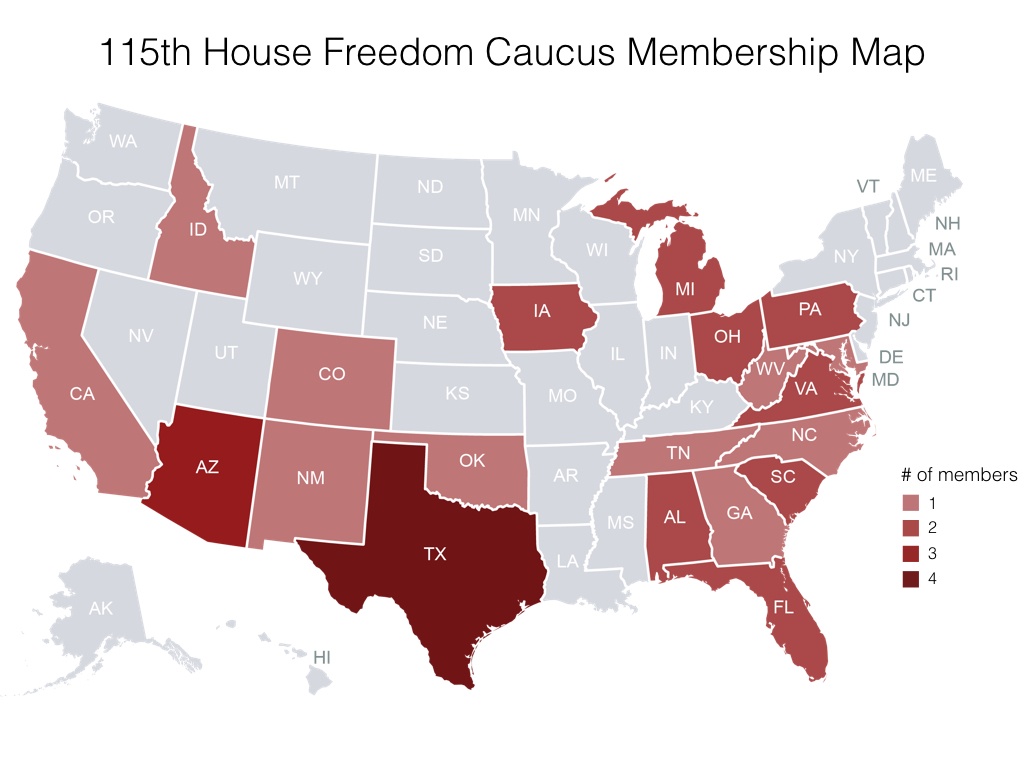Table Of Content
- Rep. Matt Rosendale on Government Funding and U.S. Foreign Aid
- Biden tells Howard Stern he’s ‘happy to debate’ Trump
- House Debate on Government Spending Until September 30
- Opinion: The Supreme Court just showed us that Trump is not incompetent. He’s a master of corruption
- McCarthy proved he’s a stronger House speaker than many expected. But GOP is split over cutting government

WASHINGTON – When Republicans took control of the House last year with almost the thinnest of majorities, all eyes turned to the House Freedom Caucus. The loose group of 30-some ultraconservative lawmakers outnumbered the narrow vote margin for Republicans and, as a result, were granted new outsized leverage over leadership to cater to their whims. Yet nothing had been announced, and the controversial Georgia congresswoman insisted nothing had been conveyed to her. The long-simmering feud between Greene and a fellow Freedom Caucus stalwart, Rep. Lauren Boebert of Colorado, had recently erupted into public name-calling, with Greene calling Boebert a “little b–ch“ on the House floor. Republican moderates ultimately backed the budget bill, knowing that there was no chance it could survive the Democratic Senate. The likeliest outcome of talks between Biden and McCarthy looked like a compromise that could earn a majority of Democrats and Republicans, if not a majority of Republicans.
Rep. Matt Rosendale on Government Funding and U.S. Foreign Aid
Data on which members voted to object to the certification of President Biden’s Electoral College win in January 2021 comes from The Washington Post.
Biden tells Howard Stern he’s ‘happy to debate’ Trump
“It’s unfortunate that the establishment is pushing moderates who support reckless spending rather than focusing their funds on maintaining and increasing the Republican majority, and we believe that Republican primary voters agree with us,” McIntosh added. Deeply reported insights into legislation, politics and policy from Sacramento, Washington and beyond. They even caused havoc for then-President Trump at times, demanding his Obamacare repeal plan move hard to the right to earn their support. Although hard-line conservatives in the House succeeded in making their changes to the spending bill, the current fight is unlikely to end in their victory. The Senate is still in Democrats’ hands, as is the White House, and Democratic negotiators will insist on stripping out the most controversial measures before allowing the bill to become law. McCarthy has tried to project calm in the face of the hard-liners’ continued demands.
House Debate on Government Spending Until September 30
Some 71% of the identified members and allies of the caucus (35 of 49) have served in Congress for six years or fewer, a count that includes nine freshmen. The longest-serving Freedom Caucus member, new House Judiciary Committee Chairman Jim Jordan of Ohio, is in his ninth term. By contrast, 58% of all other House Republicans (101 of 173) have spent six years or less in Congress, and 17 of them (10%) have served in the House for a total of 20 years or longer. Pew Research Center compiled its list from a variety of sources, including members’ websites, the 2022 endorsement list from the caucus-affiliated House Freedom Fund, and published reports from reputable news outlets. For each member, we sought confirmation from at least two unrelated sources before adding them to the list.
On Ukraine, immigration, and impeachments, the far-right Freedom Caucus has sabotaged Republicans in Congress. - Slate
On Ukraine, immigration, and impeachments, the far-right Freedom Caucus has sabotaged Republicans in Congress..
Posted: Wed, 24 Apr 2024 09:45:00 GMT [source]
At the same time, he didn’t sound open to compromise on the Freedom Caucus’s bill. HFC members have also demanded a return to “regular order” as a condition of their support for a consensus Speaker candidate. Opening the amending process, for example, would allow more amendments not just from Republicans, but also from Democrats—and, as Speaker Boehner’s experience with appropriations bills this summer revealed, that can cause more problems than it solves. As this largely unprecedented saga continues, then, we may well see new and different tools and tactics emerge as Republicans work to build a winning coalition for the next Speaker of the House. To win the Republican nomination for Speaker today, McCarthy needed 124 Republican votes—a majority within his party. To be elected by the full House at the end of October, however, he would have needed 218 votes—a majority of the full chamber, and votes that traditionally come only from fellow majority party members.
Senate Majority Leader Schumer on the Debt Limit
The Greene controversy illustrates the group’s struggle to define itself with Trump out of office. Greene quickly allied herself with the rabble-rousing caucus when she got to Washington in 2021. She, Gaetz, and Boebert were especially tight, forming the core of a “MAGA Squad” of pro-Trump ultraconservatives. But the friendship degenerated as Greene and McCarthy began to form a mutually beneficial alliance over the past year.
He was almost certain to meet the first threshold, but could lose the support of only 29 Republicans to meet the second. Without the support of some of the HFC members, then, McCarthy would have been unable to get to that 218 mark. Unlike other congressional caucuses, the Freedom Caucus does not disclose an official member list, although 16 current members list their Freedom Caucus affiliations on their official House websites, and various unofficial lists have circulated. For those reasons, it can be hard to distinguish between representatives who belong to the caucus and those who work closely with it but aren’t full members. Conservatives' tensions with Johnson have surged since the $1.2 trillion government funding bill to avert a partial shutdown.
McCarthy proved he’s a stronger House speaker than many expected. But GOP is split over cutting government
In its early years, the House Freedom Caucus focused on fiscal conservatism, seeking to limit government spending and supporting shutting down the federal government to achieve its goals. It also championed repeal of the Affordable Care Act (ACA) and implementation of stricter immigration policies. Conservatives left that meeting optimistic about their chances and told reporters the speaker was considering alternative paths.

Who Is In House Freedom Caucus? Full List of Members After Midterms Results
In the past year, the House has averted a catastrophic debt default, passed foreign military aid when it seemed hopeless and funded the government when a shutdown seemed all but inevitable. But the critical items are getting done in a more bipartisan manner than would seem possible in this era of negative partisanship. At the time, House GOP leaders hoped that rank-and-file Republicans would feel the pain and never want to shut down the government again.
He’s managed to weather the House’s roiling crises so far without losing his job or triggering a U.S. debt default. And after enduring the public embarrassment of his 15-ballot fight to become speaker and a recent Freedom Caucus tantrum over his debt-ceiling deal with President Biden, he seems resigned to the mayhem. After Republicans approved those amendments in a marathon voting session Thursday night, Democrats pulled their support from the defense spending bill, forcing Republicans to pass it by themselves. Greene threatened to kick off that process again on Friday morning, filing a motion to vacate against Johnson over negotiating with Democrats on the final spending package. But in an election year with little change after ousting McCarthy, there’s little appetite to supplant Johnson.
But many caucus members felt bruised by Greene’s bullying tactics, including the way she seemed to weaponize her access to Trump. At one point, she extended her iPhone to caucus member Matt Rosendale, who waved it away; the screen, clearly visible to photographers, showed it was Trump calling. The Trump snub has reportedly become a political problem for Rosendale, who is considering a Senate run in his home state of Montana. On the morning of May 26th, a Friday, McCarthy was signalling that a deal was near. “They’re going in a direction that won’t endure,” Vought told me. “McCarthy is going to test the conservatives.” He predicted some “rockiness” ahead for the Speaker.
In January 2021, the Freedom Caucus was almost unanimous in opposing the certification of President Joe Biden’s victory over former President Donald Trump. Of the 40 current Freedom Caucus members and allies who were serving at that time, 38 supported at least one objection to counting Biden’s electoral votes. A smaller share of all other House Republicans seated at the time (about 60%) did so. McCarthy eventually won the speaker’s gavel on the 15th ballot, but not until he agreed to ensure more Freedom Caucus representation on the powerful Rules Committee and other key panels. McCarthy also agreed to a passel of rule changes long sought by the Freedom Caucus, many of them intended to shift power away from the speaker’s office and toward committee chairs and rank-and-file members.
Citing Israel, RJC endorses ‘conservative stalwart’ against House Freedom Caucus chair in Virginia - JNS.org
Citing Israel, RJC endorses ‘conservative stalwart’ against House Freedom Caucus chair in Virginia.
Posted: Thu, 25 Apr 2024 14:41:30 GMT [source]
The whole process, then, went completely off-track after McCarthy was ousted as speaker and the newly installed speaker, Mike Johnson, had to learn the ropes. When all was said and done, “full-year government funding” wasn’t achieved until nearly halfway through the fiscal year, late last month. All the far-right griping achieved, in other words, was the delayed implementation of domestic spending cuts. The party’s right wing forced McCarthy to make deep concessions beforeallowing him to become speaker after 15 rounds of voting over five days in January.
Over the weekend, McCarthy and the White House announced that they’d finally reached an agreement. Congress would raise the debt ceiling for the next two years, and the White House would agree to some six hundred and fifty billion dollars in cuts over the following decade. On the issue of work requirements, the White House agreed to some new age restrictions sought by Republicans on cash welfare and food stamps but left Medicaid untouched. McCarthy and his negotiators could plausibly claim victory, yet so could the President. The caucus’s members, who had previously been vocal critics of government spending and debt during the administration of Pres. Barack Obama, were less outspoken about such issues during Trump’s tenure, even as the federal deficit continued to grow.
It also includes a version of a House bill that passed overwhelmingly in March that forces TikTok to divest from its Chinese parent company or face a ban in the U.S. After months of discussions, a group of three senators—one Republican, one independent, and one Democrat—reached a border deal that would have required the administration to, among other things, restrict asylum claims when southern border encounters surged. It was the first time in modern memory that Democrats had agreed to a major immigration deal that was almost entirely enforcement-based, without insisting in return on immigrants’ being guaranteed a path to legal status or citizenship. House Republicans (and especially Freedom Caucus Republicans) were never going to get much out of this Congress. The greatest accomplishment of their incredibly slim House majority was always going to be that they blocked the Democratic agenda for two years.

No comments:
Post a Comment